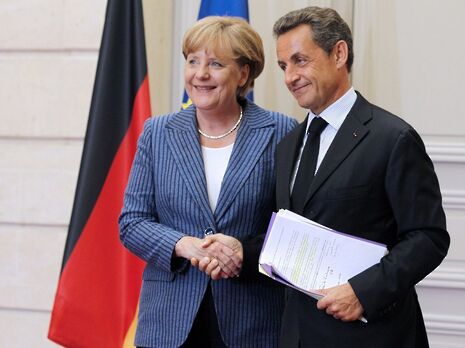Cut sovereignty, save the EU
The only hope for Europe is greater leves of political union, looking beyond national interest

What is the problem with the EU? There are very few people who think there is none – with Greece and now Italy going down in flames, there has never before seemed to be a greater disconnect between Europeans and the EU.
The euro seems on the verge of destruction and the ‘European project’ itself seems to be teetering on collapse.The question, then, is what can be done about it? Increasing numbers of people, not just in the UK, are being brought round to the view that the EU itself must go – that ‘political union’ should be abandoned, and that we should reduce the ‘superstate’ to a free-trade zone.I reject this view.
The problem with the EU is not the extent of political union: it is exactly the fact that there is no political union. Rather than a union of Europeans, we have a union of European governments, and it is responsible not to any electorate but directly to the competing interests of sovereign governments. The EU is criticised for its democratic unaccountability, but this is exactly the point: to be accountable, it cannot simply rely on neverending compromises between sovereign states which have their own interests firmly in front of those of Europeans as a whole.
What can better symbolise this problem than the fact that the President of the European Council – feted as a leader for Europe on the world stage – was chosen not by the democratic choice of Europeans as a whole, but by the shadowy machinations of national representatives behind the closed doors of Brussels? The EU is unaccountable because of the political obstructionism of national governments, who have repeatedly shown themselves incapable of thinking beyond the immediate short-term.
The present crisis is a crisis that is driven by national governments.There is a common European interest. As Coudenhove-Kalergi so prophetically pointed out in the 1930s, a continent of small competing sovereign nation-states is not and has not since the Second World War been an option for Europe: either Europeans can choose to participate in a united Europe, or they choose to surrender themselves to the will of one or another of the external superpowers that are overshadowing it.
Only one of these options guarantees the genuine political freedom of Europeans. It is high time to cut out the government middlemen, and to rid ourselves of the idea that the EU can carry on sitting on the fence, paying lip-service to national sovereignty on the one hand and supporting the idea of integration on the other. The euro requires an economic government. Europe requires a united foreign policy. Political union cannot be a taboo – it is a necessity.
There are some who have realised this, but there has been no effort to articulate this necessity in a genuinely popular movement. Rather than mobilising genuine popular sentiment, those pressing for European unity have tried to manipulate governments and operate detached from the people of Europe as a whole. Certainly, many people have decided they do not want more Europe – but they cannot be ignored. They must be persuaded.
The EU must be democratised, and a European sentiment must be actively developed. A united Europe is good, but without popular agreement, any attempt to bring it about will be essentially illegitimate.As for Britain, notoriously Eurosceptic as it is – perhaps it is time to openly challenge this anti-European consensus.
What is there for Britain outside Europe? The Commonwealth is drifting its separate ways, and American strategists see the ‘Special Relationship’ as anything but special. It is time for Europeanism to come out of the shadows and engage directly with the people.
 Features / Should I stay or should I go? Cambridge students and alumni reflect on how their memories stay with them15 December 2025
Features / Should I stay or should I go? Cambridge students and alumni reflect on how their memories stay with them15 December 2025 News / Cambridge study finds students learn better with notes than AI13 December 2025
News / Cambridge study finds students learn better with notes than AI13 December 2025 Comment / The magic of an eight-week term15 December 2025
Comment / The magic of an eight-week term15 December 2025 News / News In Brief: Michaelmas marriages, monogamous mammals, and messaging manipulation15 December 2025
News / News In Brief: Michaelmas marriages, monogamous mammals, and messaging manipulation15 December 2025 News / Uni Scout and Guide Club affirms trans inclusion 12 December 2025
News / Uni Scout and Guide Club affirms trans inclusion 12 December 2025









